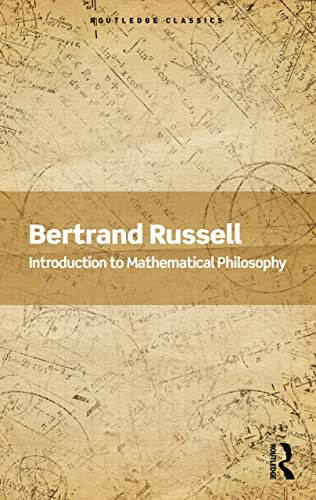

Most ebook files are in PDF format, so you can easily read them using various software such as Foxit Reader or directly on the Google Chrome browser.
Some ebook files are released by publishers in other formats such as .awz, .mobi, .epub, .fb2, etc. You may need to install specific software to read these formats on mobile/PC, such as Calibre.
Please read the tutorial at this link. https://ebooknice.com/page/post?id=faq
We offer FREE conversion to the popular formats you request; however, this may take some time. Therefore, right after payment, please email us, and we will try to provide the service as quickly as possible.
For some exceptional file formats or broken links (if any), please refrain from opening any disputes. Instead, email us first, and we will try to assist within a maximum of 6 hours.
EbookNice Team

Status:
Available4.7
13 reviews
ISBN 10: 1032312270
ISBN 13: 9781032312279
Author: Bertrand Russell
"The philosophy of mathematics will naturally be expected to deal with questions at the frontier of knowledge, as to which comparative certainty is not yet attained. But separation of such questions is hardly likely to be fruitful unless the more scientific parts of mathematics are known. A book dealing with those parts may, therefore, claim to be an introduction to mathematical philosophy..." - Bertrand Russell, from the Preface First published in 1919, Introduction to Mathematical Philosophy shows Russell drawing on his formidable knowledge of philosophy and mathematics to write a brilliant introduction to the subject. Russell explains that mathematics can be approached in two distinct directions: one that is driven by a mechanical kind of simplicity and builds towards complexity, from integers to fractions and real numbers to complex ones; and one that searches for abstractness and logical simplicity by asking what general principles underlie mathematics. From here Russell introduces and explains, in his customary pellucid prose, the definition of numbers, finitude, correlation and relation, mathematical limits, infinity, propositional descriptions and classes. Russell concludes with a fascinating summary of the relationship between mathematics and logic, of which he states "logic is the youth of mathematics." This Routledge Classics edition includes a new Foreword by Michael Potter.
1 The Series of Natural Numbers
2 Definition of Number
3 Finitude and Mathematical Induction
4 The Definition of Order
5 Kinds of Relations
6 Similarity of Relations
7 Rational, Real, and Complex Numbers
8 Infinite Cardinal Numbers
9 Infinite Series and Ordinals
10 Limits and Continuity
11 Limits and Continuity of Functions
12 Selections and the Multiplicative Axiom
13 The Axiom of Infinity and Logical Types
14 Incompatibility and the Theory of Deduction
15 Propositional Functions
16 Descriptions
17 Classes
Tags: Bertrand Russell, Mathematical, Philosophy